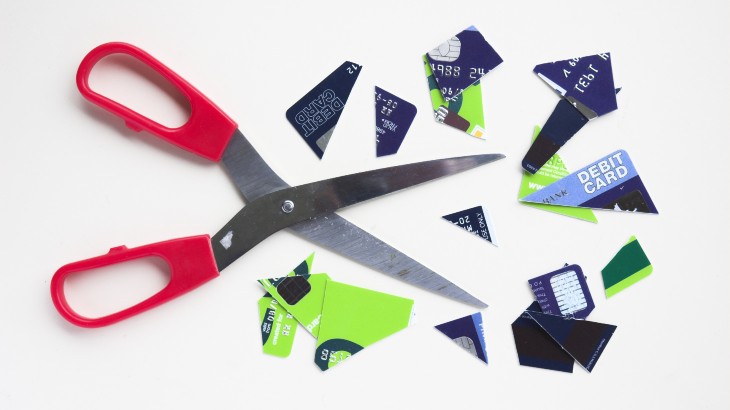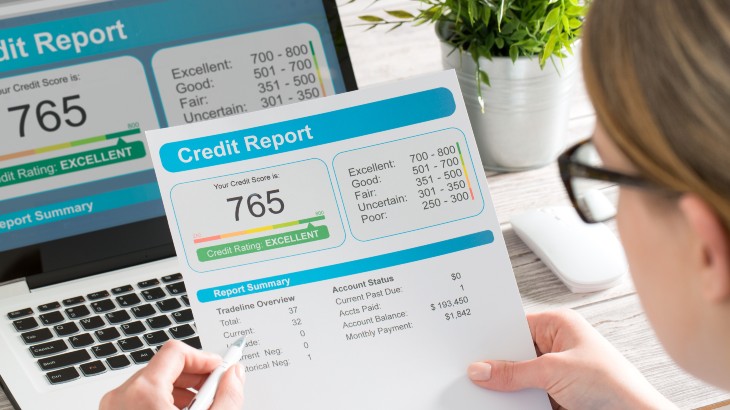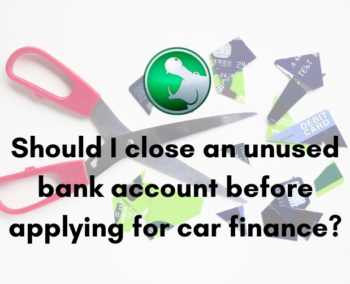It’s more common than ever to have multiple bank accounts, which means it’s also easier than ever to lose track of the current accounts you no longer use.
But will closing an unused bank account affect your credit score? And should you close them before you apply for car finance, or is it worth keeping them open just in case?
Before we answer that question, let’s look at how bank accounts impact your credit score.
Is bank account information shown on your credit report?
The whole purpose of your credit report is to show your creditworthiness. This means that accounts that don’t have a credit facility, such as a savings account or a basic current account, won’t show on your report.
Of course, some bank accounts offer credit facilities in the form of an overdraft, so this is one instance where you may see your bank account show up on your credit report.
How an overdraft affects your credit score
As an overdraft is classed as a debt, those who look at your report will be able to see you have access to this credit facility, what the limit is, and how much of the overdraft you’re using.
If you don’t use your overdraft, your report will show a zero balance and won’t affect your score.

However, in this instance, it’s worth considering cancelling your overdraft. Lenders can look unfavourably upon those who have a large credit facility available and don’t use it, because of the possibility of falling into debt.
If you do use your overdraft and stay within your agreed limit but pay it off promptly, it may not even appear on your credit report, as reporting to the credit agencies usually only happens on a monthly basis.
READ: Should I close my credit card account before applying for car finance?
Generally speaking, the advice is to use no more than 25% of your available credit to keep your score ‘healthy’.
However, if you go over your agreed limit or ‘live in’ your overdraft – while incurring charges for not paying it off – this can damage your score, as it could seem to lenders that you’re struggling to manage your finances.
The difference between an authorised and unauthorised overdraft on your credit score
There are two types of overdraft, and one can have a much bigger impact on your credit score than the other.
Authorised overdraft
An authorised overdraft is one that’s been approved by your bank or building society. If you keep within the limit and regularly pay it off, this won’t have much of an impact on your score.
Unauthorised overdraft
An unauthorised overdraft is one that’s not been pre-arranged with your bank and can happen when you have either spent more money than is in your account or when you go over your agreed overdraft facility.
Not only can you get heavily charged for an unauthorised overdraft, but it will also negatively impact your credit rating.
Can closing a bank account affect your credit score?
Whether closing an unused bank account affects your credit score depends on the status of the account when it’s closed.
If your account has a zero balance when it’s closed, it won’t have an effect on your score.

However, if you close the account when it has a negative balance, the bank may either send your account to a collection agency or come to a default arrangement with you.
Both of these will have a detrimental effect on your score.
READ: How to prepare your finances for a car finance loan
How to close your bank account the right way
If you’re looking to do a spring clean of your accounts and don’t want it to affect your credit score, before you close your unused bank account, make sure you do a little research.
Firstly, contact your bank or building society to double-check that you don’t have a negative balance.
Bear in mind that any transactions that are still pending or due could come out after you’ve closed the account and will put it into arrears, so ensure there’s enough money in there to settle these.
If you’re concerned you may have forgotten a pending transaction, you can always leave some money in the account for a month before closing it to make sure.
What happens if you close your account with a negative balance?
As mentioned, if you close your bank account and it has a negative balance, it could either be listed on your credit report as a default, or sent to a debt collection agency, which will also be flagged on your report.
This can have a serious impact on your score. Unfortunately, once you’ve defaulted on an account, it stays on your credit report for up to seven years – regardless of whether you’ve paid it off or have an arrangement with the collection agency or bank.
Although your score will only improve with time following a default, settling the debt will show on your report and will often be regarded favourably by lenders.
So, it’s worth paying it off as soon as you can.
Keeping a healthy credit report
There’s nothing wrong with conducting a credit report spring clean once in a while.
If you have an unused bank account gathering dust and want to close it, it certainly won’t hurt. In fact, if you have an account with an overdraft you don’t use, by closing it and reducing your overall credit limit, it could actually work in your favour.

There are plenty of other ways to keep your credit score in good standing too. Registering on the electoral roll, trimming down your debts, cutting any outdated financial ties and ensuring you make all your repayments on time all go to increasing your score.
READ: What is a credit report and what does it contain?
By monitoring your credit report regularly, and making sure it’s all up-to-date and correct, you can feel more confident when the time comes to apply for car finance.
And if your score isn’t as good as you’d like, don’t worry – we may still be able to help.
At Hippo, we have access to lenders who specialise in helping borrowers with bad credit.
We also only use a soft credit check in the first instance to find out whether you’ll be accepted for car finance, so there’s no impact on your credit score.
Find out today if you’ll be accepted with our free soft credit search.














